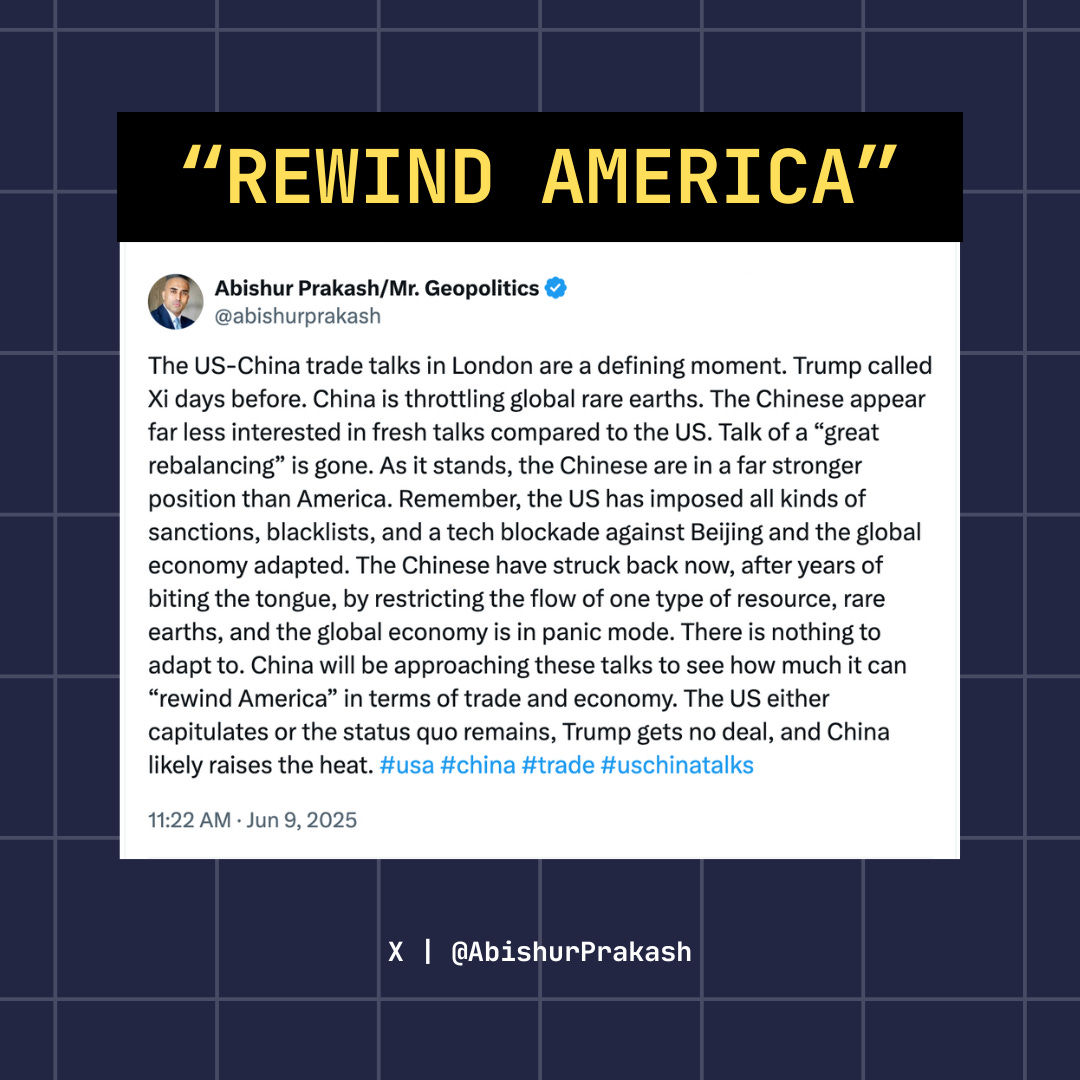The Rise of "Geopolitical Tracking"
Stakeholders approach trade in a new, radical way
Geopolitics is rapidly remaking global trade, changing its design and functioning on a scale unseen in modern times. The current tensions over rare earths reflect the new calculus of major economies, such as China, which are throttling resources key to manufacturing and supply chains, making economic reliance even more dangerous and unjustifiable.
Nothing can bring back the old trade environment, a reality that both the US and Chinese delegations are well aware of, even if they do not vocalize it, as they meet in London to discuss the future of trade relations.
The new era of trade that is underway is both familiar and unfamiliar at the same time. On the back of “known” structure sand systems, goods are circulating the world in new and unexpected ways, complicating the strategies of many governments and businesses.
Surrounding the latter is the rise of “geopolitical tracking,” a new government behavior that is utterly different from the monitoring or observing of the world stage that businesses conduct.
(“Geopolitical Tracking” is a concept/expression of Abishur Prakash/Mr. Geopolitics)
📣 POPULAR INSIGHTS ON THIS TOPIC
Keep reading with a 7-day free trial
Subscribe to Mr. Geopolitics to keep reading this post and get 7 days of free access to the full post archives.








